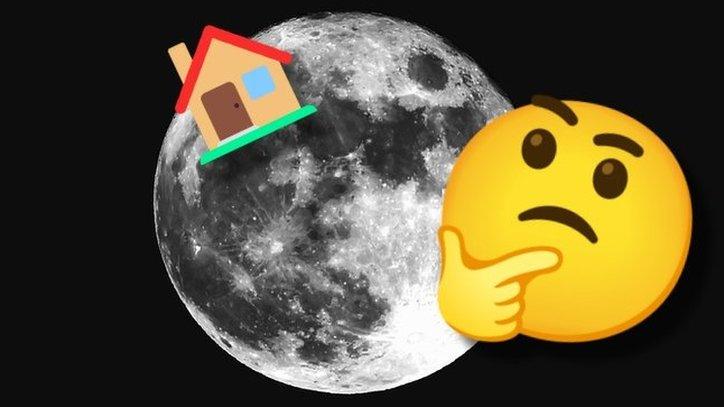Moon time: Should the Moon have an official time zone?
- Published
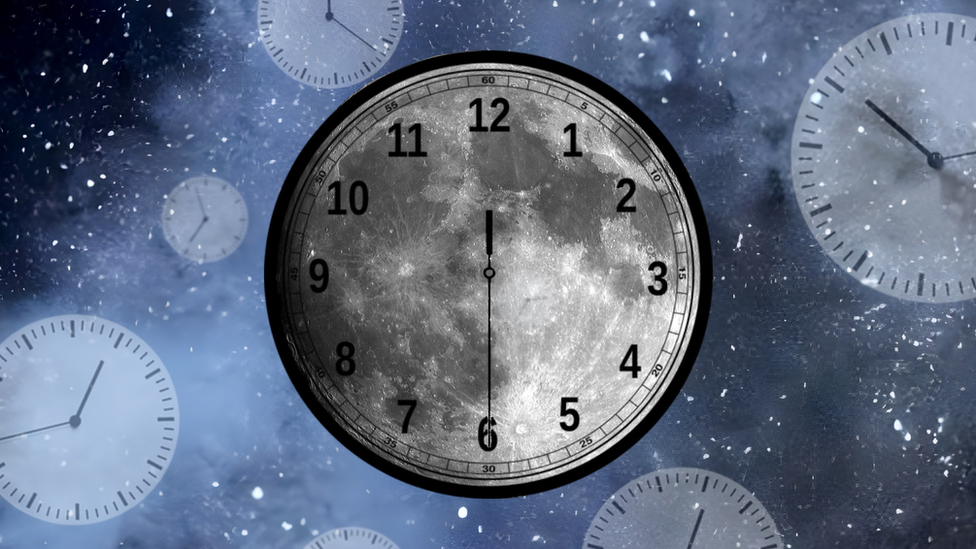
What time is it on the Moon?
Well, at the moment nobody is entirely sure.
As different countries and companies plan to travel to and work on the lunar surface over the coming years, there is debate about whether an official Moon time would be a good idea to allow those missions to be safely co-ordinated.
Now President Biden's team at the White House has asked US space agency Nasa to develop a new time zone for the Moon - Coordinated Lunar Time (CLT) - to be ready by 2026 in time for its manned mission to the Moon.
It follows calls from others, such as the European Space Agency (ESA), who argued that an agreed time zone for the Moon will not only make it easier for different space agencies from around the world to work together, but could also mean more precise map guidance and navigation on the lunar surface.
Why isn't there a time on the Moon now?
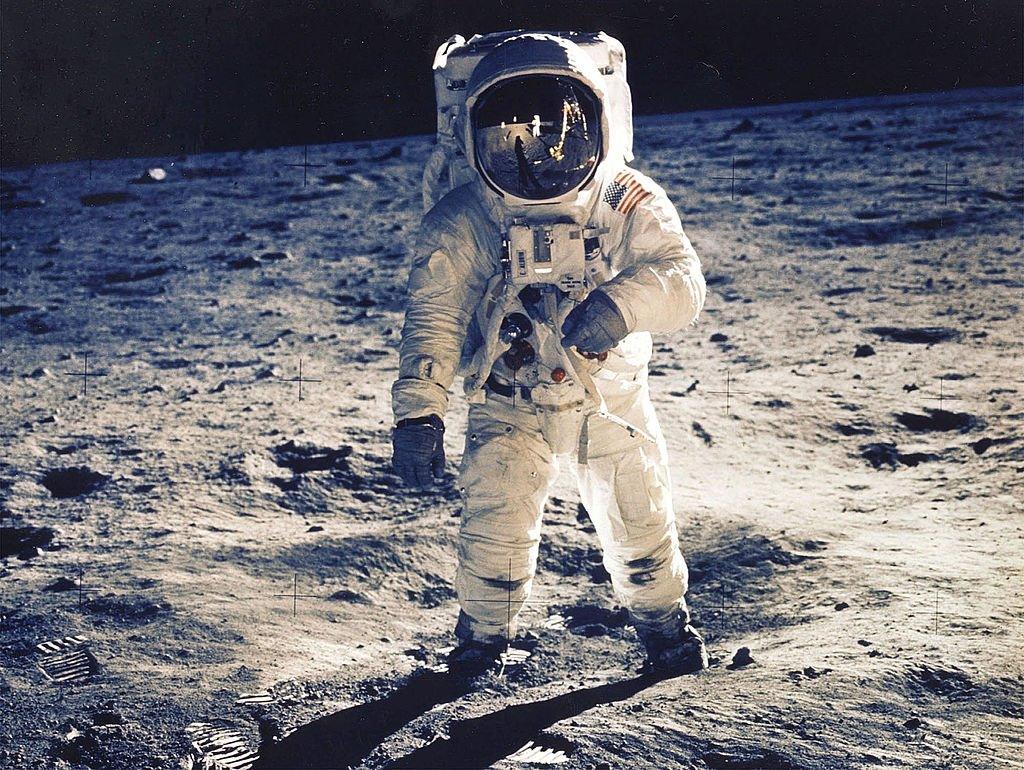
With more missions planned to the Moon, experts say they need a precise lunar time system
One of the catches in a Moon-time plan is that experts argue that a single space agency would have to be the one responsible for establishing what the Moon time should be - and that would need lots of agreement.
A decision would also need to be made on whether it should follow the time zone of a country here on Earth or whether it should be a time specific to the Moon and nowhere else.
Timekeeping on the Moon might be tricky too as clocks actually run slightly faster on the lunar surface - a lunar clock would gain 58.9 microseconds per day - because the Moon has a weaker gravitational pull than the Earth.
And while it might mean astronauts are early for their lunar appointments, it isn't ideal for following Earth-based time zones.
Time is split across the globe into time zones using imaginary lines called meridians. They run from the North Pole to the South Pole. Have you heard of Greenwich Mean Time, or GMT for short?
Well one of these imaginary lines runs trough Greenwich in London.
As the Earth turns during a 24 hour day, time in countries to the east of Greenwich is always ahead of the UK.
Time in countries to the west is always behind that of the UK.
WATCH: Moon landing - What are conditions like on the Moon?
Typically, short term missions to the Moon use deep space radio antennas to try to keep equipment in sync with time on Earth.
But experts at the ESA say this method may not be suitable long term, as humans start to have a more permanent stay on the Moon.
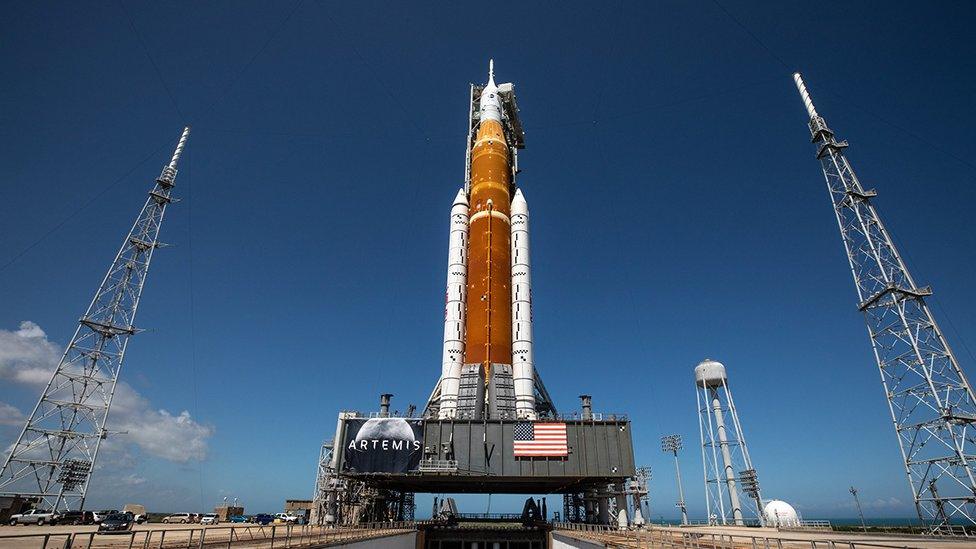
Nasa's most powerful rocket ever will blast people back to the Moon's surface as part of the Artemis mission
Bernhard Hufenbach from the ESA says establishing a time zone on the Moon will mean the same can be done for future visits to other planetary locations such as Mars.
Adding that it needs to be "practical for astronauts" working on the lunar surface, he also listed lunar challenges, such as areas of the Moon where a day lasts for almost an entire Earth month and freezing cold nights that last two weeks!
The first human visit to the Moon in over 50 years is scheduled to be Nasa's Artemis mission that will land the first woman and next man onto the lunar surface.
- Published20 November 2022
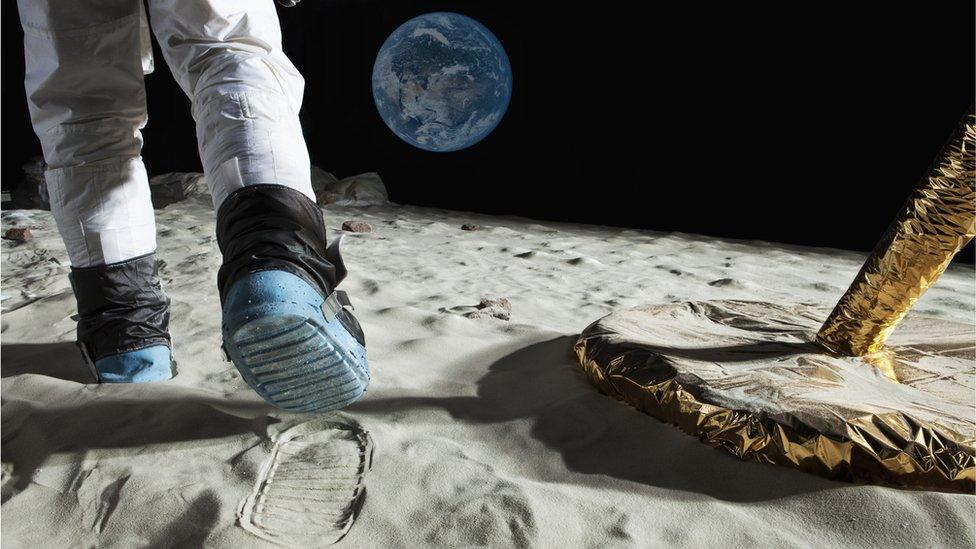
- Published5 December 2022
